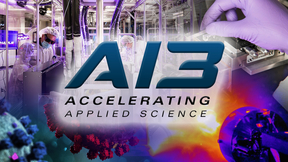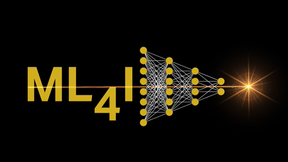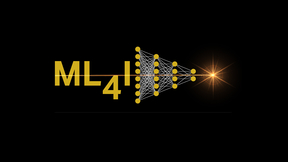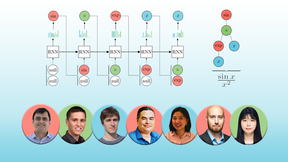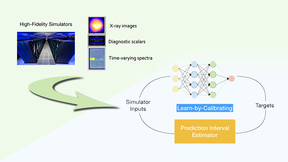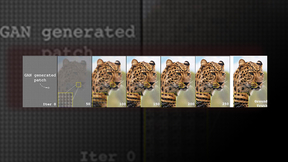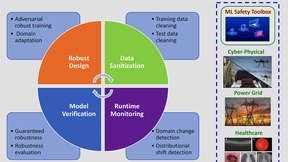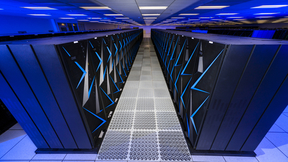Back
Lawrence Livermore National Laboratory (LLNL) has established the AI Innovation Incubator (AI3), a collaborative hub aimed at uniting experts in artificial intelligence (AI) from LLNL, industry and academia to advance AI for large-scale scientific and commercial applications. LLNL has entered into a new memoranda of understanding with Google, IBM and NVIDIA, with plans to…
LLNL held its first-ever Machine Learning for Industry Forum (ML4I) on Aug. 10-12. Co-hosted by the Lab’s High Performance Computing Innovation Center (HPCIC) and Data Science Institute (DSI), the virtual event brought together more than 500 participants from the Department of Energy (DOE) complex, commercial companies, professional societies and academia. Industry…
Lawrence Livermore National Laboratory (LLNL) is looking for participants and attendees from industry, research institutions and academia for the first-ever Machine Learning for Industry Forum (ML4I), a three-day virtual event starting Aug. 10. Pre-registrations are open for the forum, which aims to foster and illustrate the adoption of machine learning methods for…
Lawrence Livermore National Laboratory (LLNL) computer scientists have developed a new framework and an accompanying visualization tool that leverages deep reinforcement learning for symbolic regression problems, outperforming baseline methods on benchmark problems. The paper was recently accepted as an oral presentation at the International Conference on Learning…
Lawrence Livermore National Laboratory (LLNL) computer scientists have developed a new deep learning approach to designing emulators for scientific processes that is more accurate and efficient than existing methods. In a paper published by Nature Communications, an LLNL team describes a “Learn-by-Calibrating” (LbC) method for creating powerful scientific emulators that…
The 2021 IEEE Winter Conference on Applications of Computer Vision (WACV 2021) on Wednesday announced that a paper co-authored by a Lawrence Livermore National Laboratory (LLNL) computer scientist received the conference’s Best Paper Honorable Mention award based on its potential impact to the field. The paper, titled "Generative Patch Priors for Practical Compressive…
The 34th Conference on Neural Information Processing Systems (NeurIPS) is featuring two papers advancing the reliability of deep learning for mission-critical applications at Lawrence Livermore National Laboratory (LLNL). The most prestigious machine learning conference in the world, NeurIPS began virtually on Dec. 6. The first paper describes a framework for understanding…
The Department of Energy’s National Nuclear Security Administration (NNSA), Lawrence Livermore National Laboratory (LLNL) and its industry partners today officially unveiled Sierra, one of the world’s fastest supercomputers, at a dedication ceremony to celebrate the system’s completion. Sierra will serve the NNSA’s three nuclear security laboratories, LLNL, Sandia National…

